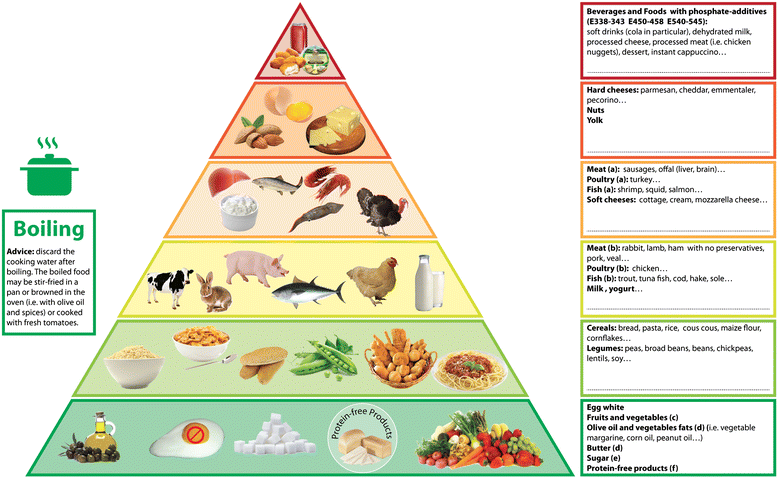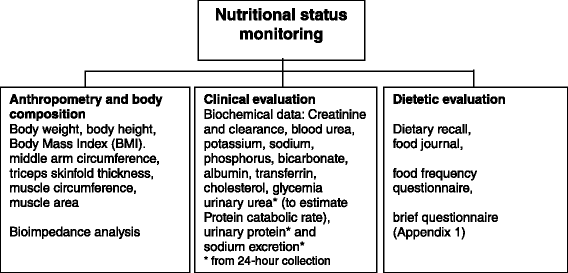"Dietaly": practical issues for the nutritional management of CKD patients in Italy
- PMID: 27473183
- PMCID: PMC4966713
- DOI: 10.1186/s12882-016-0296-5
"Dietaly": practical issues for the nutritional management of CKD patients in Italy
Abstract
Evidence exists that nutritional therapy induces favorable metabolic changes, prevents signs and symptoms of renal insufficiency, and is able to delay the need of dialysis. Currently, the main concern of the renal diets has turned from the efficacy to the feasibility in the daily clinical practice.Herewith we describe some different dietary approaches, developed in Italy in the last decades and applied in the actual clinical practice for the nutritional management of CKD patients.A step-wise approach or simplified dietary regimens are usually prescribed while taking into account not only the residual renal function and progression rate but also socio-economic, psychological and functional aspects.The application of the principles of the Mediterranean diet that covers the recommended daily allowances for nutrients and protein (0.8 g/Kg/day) exert a favorable effect at least in the early stages of CKD. Low protein (0.6 g/kg/day) regimens that include vegan diet and very low-protein (0.3-0.4 g/Kg/day) diet supplemented with essential amino acids and ketoacids, represent more opportunities that should be tailored on the single patient's needs.Rather than a structured dietary plan, a list of basic recommendations to improve compliance with a low-sodium diet in CKD may allow patients to reach the desired salt target in the daily eating.Another approach consists of low protein diets as part of an integrated menu, in which patients can choose the "diet" that best suits their preferences and clinical needs.Lastly, in order to allow efficacy and safety, the importance of monitoring and follow up of a proper nutritional treatment in CKD patients is emphasized.
Keywords: CKD; Dietary phosphorus; Dietary sodium; Dietary treatment renal insufficiency; Low-protein diet; Nutrition; Simplified diet.
Figures
References
-
- Levey AS, Greene T, Beck GJ, et al. Dietary protein restriction and the progression of chronic renal disease: what have all of the results of the MDRD study shown? Modification of Diet in Renal Disease Study group. Journal of the American Society of Nephrology: JASN. 1999;10:2426–2439. - PubMed
-
- Fouque D, Laville M. Low protein diets for chronic kidney disease in non diabetic adults. Cochrane Database Syst Rev. 2009;3:CD001892. - PubMed
Publication types
MeSH terms
Substances
LinkOut - more resources
Full Text Sources
Other Literature Sources
Medical




